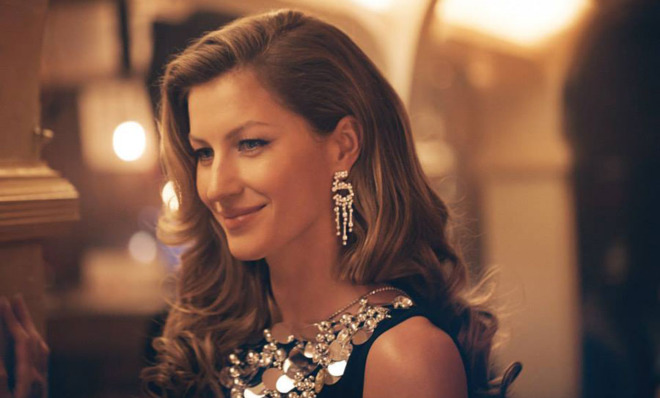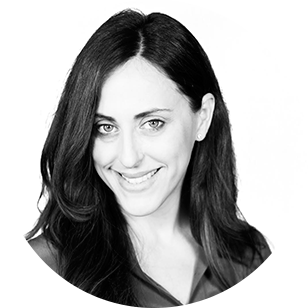'Having it all' has officially jumped the shark
A once-thoughtful discussion is now just navel-gazing about managing abundance


A free daily email with the biggest news stories of the day – and the best features from TheWeek.com
You are now subscribed
Your newsletter sign-up was successful
In the latest "short film" for the perfume Chanel No. 5, model Gisele Bundchen stars as a modern woman struggling to balance work and life. The long commercial begins with Bundchen surfing, while a man — presumably her husband and the father of her daughter — waits forlorn at their palatial beach house. He places a love letter on a glass table and then leaves in his chauffeured Range Rover, right before Bundchen returns.
Once back at the house Bundchen quickly embraces her daughter before sending her to the nanny, discovers the letter, makes a sad face, rushes off to do a photo-shoot, reads the letter on a break, and then abruptly dashes off to make peace with her man. They kiss at a concert, "No. 5" surfaces above the ocean, and it's over. The lesson? A woman can never please everyone if she also takes time to please herself — but if she is gorgeous, wealthy, and wearing the right perfume, things will probably turn out alright.
In the ad, Chanel taps into the work/life balance, "having it all" question that dominates much of the conversation surrounding gender equality. I suppose the fact that Chanel would think to use such a story to push their iconic brand could be read as a victory for those who work hard to draw attention to these issues.
The Week
Escape your echo chamber. Get the facts behind the news, plus analysis from multiple perspectives.

Sign up for The Week's Free Newsletters
From our morning news briefing to a weekly Good News Newsletter, get the best of The Week delivered directly to your inbox.
From our morning news briefing to a weekly Good News Newsletter, get the best of The Week delivered directly to your inbox.
Unfortunately though, this commercial is just another example of the way the "having it all" conversation has been perverted, moving from a constructive discussion about women's choices and burdens to navel-gazing about managing abundance. It's official: "having it all" has jumped the shark.
In the commercial, Bundchen is a woman who seems to pretty much have it all, and then some. (She's got a hot husband who loves her, a beach house, childcare, a Chanel surfboard, not to mention the time and flexibility to ride a wave.) The model/mother/wife/surfer in the commercial lacks for nothing. Her life is clearly one of plenty; her only problem is navigating it in a way that she finds satisfying. Chanel wants us to relate to this modern woman, but the problem is that the majority of us are finding ourselves navigating scarcity, not plenty.
I know it is too much to expect a fashion house, particularly one prone to camp like Chanel, to create a slightly realistic portrait of the modern woman. But they are hardly the only ones to fall into this trap. From Arianna Huffington's telling us we should meditate more to "feminist" conferences that cost $500 a head, "having it all" and "achieving work/life balance" have come to stand for women with tons of resources trying to figure out how to use less of them.
"Having it all" is an imperfect term. When taken literally, it makes women sound greedy and insufferable — nobody gets to actually have it all. Still, it has become the touchstone phrase for the modern woman's predicament, the prism through which many understand their desire for a less overwhelming life. (Same really with the concept of "work/life balance," another impossible ideal that many women would like to approach, even if they understand they will never achieve it.)
A free daily email with the biggest news stories of the day – and the best features from TheWeek.com
In an article about the phrase "having it all," feminist historian Ruth Rosen explains its roots in the shift from a collectivist "we can do this together" to an individualist "you can do this on your own" approach in the women's movement. She writes:
The belief that you could become a superwoman became a journalistic trope in the 1970s and has never vanished. By 1980, most women's (self-help) magazines turned a feminist into a Superwoman, hair flying as she rushed around, attaché case in one arm, a baby in the other. The Superwomen could have it all, but only if she did it all. And that was exactly what feminists had not wanted. [Open Democracy]
The Chanel ad is the final nail on the coffin of the superwoman ideal; not even a model in a perfume commercial can achieve it. Women have moved on from wanting to do it all. Sadly though the solutions for superwoman syndrome are still stuck in this individualist approach Rosen talks about. Do less, be less, want less, women are told, when so many of us really need more.
Elissa Strauss writes about the intersection of gender and culture for TheWeek.com. She also writes regularly for Elle.com and the Jewish Daily Forward, where she is a weekly columnist.
